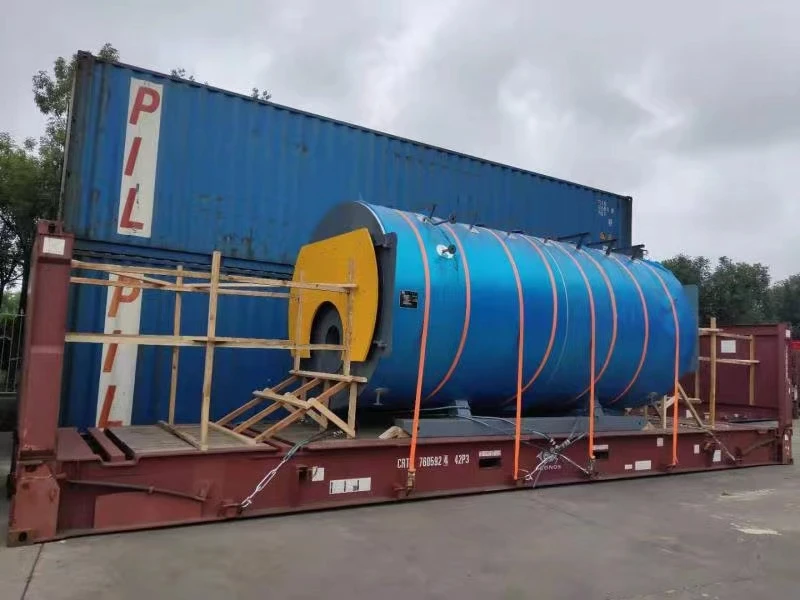Supplier of Thermal Oil Circulating Boilers for Efficient Heating Solutions
The Role of Thermal Oil Circulating Boilers in Industrial Applications
In the world of industrial heating solutions, the importance of thermal oil circulating boilers cannot be overstated. These boilers are key components in various sectors, including chemical processing, food production, and manufacturing, due to their efficiency and ability to maintain precise temperature control.
Thermal oil boilers, as the name suggests, utilize thermal oil (also known as heat transfer fluid) to transfer heat throughout the system. Unlike traditional steam boilers, which generate steam for heating, thermal oil boilers operate at lower pressures and have higher thermal efficiency. This results in reduced operational costs and increased safety, making them a preferred choice for many industries.
Advantages of Thermal Oil Circulating Boilers
1. High Efficiency One of the primary benefits of using thermal oil is its high heat capacity and stability at elevated temperatures. Thermal oil can operate at temperatures of up to 300°C (572°F) or even higher in certain applications. This allows industries to achieve the required process temperatures without the need for high-pressure systems.
2. Improved Safety Since thermal oil circulates without the need for pressure, the risks associated with steam boilers, such as explosions caused by pressure failures, are significantly minimized. Furthermore, thermal oil systems are designed with robust safety features to ensure the integrity of the process.
3. Precise Temperature Control Thermal oil circulating boilers provide excellent temperature control over the heating process. This is crucial for industries where temperature stability directly impacts product quality, such as in food processing and chemical manufacturing.
4. Versatility These boilers can be used in diverse applications. They are ideal for heating, drying, and processing in various sectors, such as plastics, textiles, and pharmaceuticals. Their versatility makes them an invaluable asset in many production environments.
5. Reduced Environmental Impact Modern thermal oil boilers are designed with environmental sustainability in mind. They can operate on a variety of fuels, including natural gas, biomass, and even waste oil, allowing companies to choose greener options, thereby reducing their carbon footprint.
Selecting a Reputable Supplier
thermal oil circulating boiler supplier

When considering the adoption of thermal oil circulating boilers, selecting a reliable supplier is crucial. A reputable supplier will not only provide high-quality equipment but also offer comprehensive services, including installation, maintenance, and technical support.
Key Factors to Consider When Choosing a Supplier
1. Experience and Expertise Look for a supplier with a proven track record in the thermal oil industry. A well-established supplier is more likely to understand the intricacies of your specific heating requirements and can provide tailored solutions.
2. Product Range A diverse product offering indicates that a supplier can meet different demands and applications. It's beneficial to work with a supplier who can provide various types of thermal oil boilers and related equipment, ensuring that they have the right solution for your needs.
3. Quality Assurance Ensure that the supplier adheres to strict quality standards and certifications. Quality assurance processes should be in place during the manufacturing of the boilers to ensure reliability and performance.
4. After-Sales Support An excellent after-sales support system is essential for troubleshooting and maintenance. Suppliers should provide accessible customer service and technical assistance to help during operational downtime.
5. Customer Reviews and Case Studies Checking customer reviews and case studies can provide insight into the supplier’s reliability and the performance of their products in real-world applications.
Conclusion
Thermal oil circulating boilers are a valuable asset in the modern industrial landscape due to their numerous advantages, including efficiency, safety, and versatility. Choosing the right supplier is critical to harnessing these benefits effectively. Businesses looking to implement or upgrade their thermal oil systems should prioritize reputable suppliers who can offer comprehensive support and high-quality products, ensuring smooth operations and optimal performance in their heating processes. In a world where energy management and sustainability are increasingly prioritized, thermal oil boilers are poised to play a significant role in enhancing operational efficiency across various industries.
-
Top Electric Steam Boiler Manufacturers - High Efficiency SolutionsNewsJul.30,2025
-
Top Electric Steam Boiler Manufacturers – Efficient Industrial SolutionsNewsJul.29,2025
-
Top Electric Steam Boiler Manufacturers | Reliable Industrial SolutionsNewsJul.29,2025
-
OEM Steam Boiler Solutions for Custom Needs | High Efficiency & VersatilityNewsJul.29,2025
-
High-Efficiency Thermal Oil Boiler for Industrial Heating SolutionsNewsJul.29,2025
-
Top Electric Steam Boiler Manufacturers for Industrial EfficiencyNewsJul.28,2025

